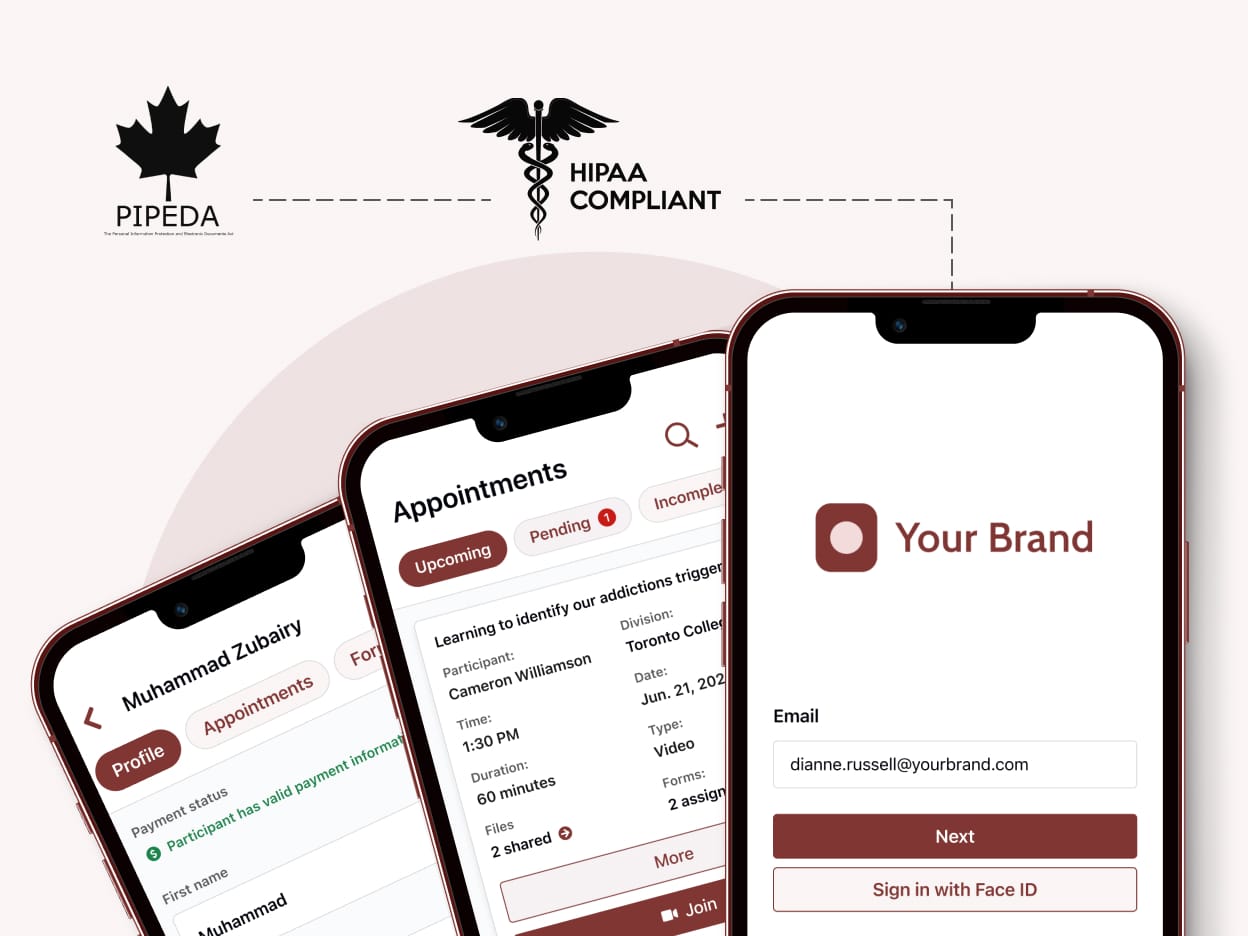- Problems we solve
- Features
-
Telehealth software
Built for behavioral health, leverage workflow automations that reduce manual work.
White label patient portal
Engage and connect with patients through video, messaging, and content.
EHR integrations
Standardize data, measure business outcomes, and scale telehealth operations quickly.
Secure & HIPAA compliant
HIPAA/PHIPA compliant telehealth platform with 256-bit encryption.
Where OnCall fits
An end-to-end telehealth operations software designed for behavioral health.
Menu
-
- Packages
- Resource center
-
Resource Center
Discover the latest in telehealth from case studies, eBooks, and media.
Support
Patients and providers access expert technical support, training materials, and documentation.
Developer Hub
Integrate OnCall into your existing infrastructure to maximize interoperability.
Menu
-
- Company
-
About us
We’re leading the way in enabling healthcare companies to be virtual-first.
Careers
Join our team.
Menu
-
-
- Sign in
-
Canada
United States
-
- Problems we solve
- Features
-
Telehealth software
Built for behavioral health, leverage workflow automations that reduce manual work.
White label patient portal
Engage and connect with patients through video, messaging, and content.
EHR integrations
Standardize data, measure business outcomes, and scale telehealth operations quickly.
Secure & HIPAA compliant
HIPAA/PHIPA compliant telehealth platform with 256-bit encryption.
Where OnCall fits
An end-to-end telehealth operations software designed for behavioral health.
Menu
-
- Packages
- Resource center
-
Resource Center
Discover the latest in telehealth from case studies, eBooks, and media.
Support
Patients and providers access expert technical support, training materials, and documentation.
Developer Hub
Integrate OnCall into your existing infrastructure to maximize interoperability.
Menu
-
- Company
-
About us
We’re leading the way in enabling healthcare companies to be virtual-first.
Careers
Join our team.
Menu
-
-
- Problems we solve
- Features
-
Telehealth software
Built for behavioral health, leverage workflow automations that reduce manual work.
White label patient portal
Engage and connect with patients through video, messaging, and content.
EHR integrations
Standardize data, measure business outcomes, and scale telehealth operations quickly.
Secure & HIPAA compliant
HIPAA/PHIPA compliant telehealth platform with 256-bit encryption.
Where OnCall fits
An end-to-end telehealth operations software designed for behavioral health.
Menu
-
- Packages
- Resource center
-
Resource Center
Discover the latest in telehealth from case studies, eBooks, and media.
Support
Patients and providers access expert technical support, training materials, and documentation.
Developer Hub
Integrate OnCall into your existing infrastructure to maximize interoperability.
Menu
-
- Company
-
About us
We’re leading the way in enabling healthcare companies to be virtual-first.
Careers
Join our team.
Menu
-
-








